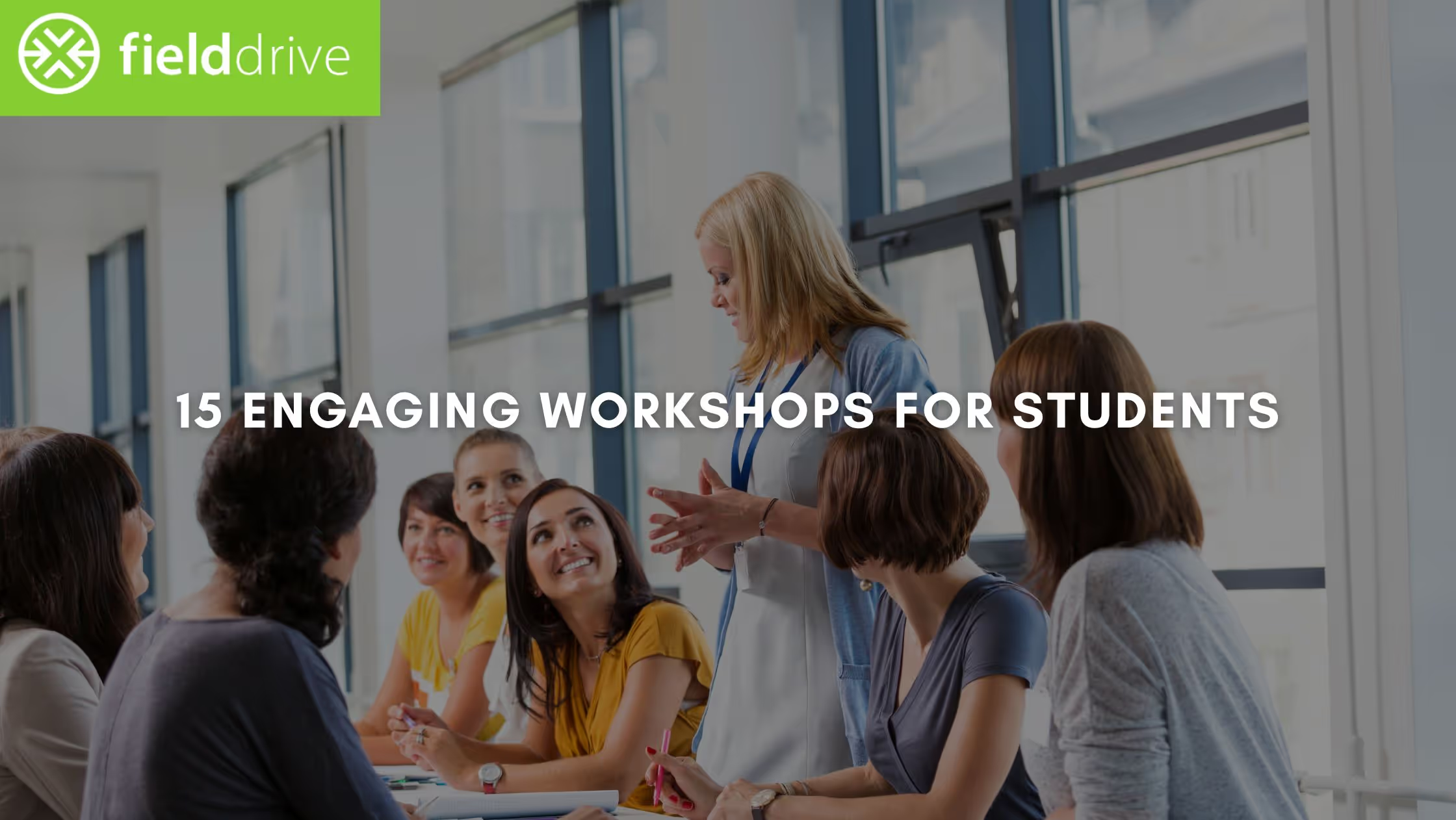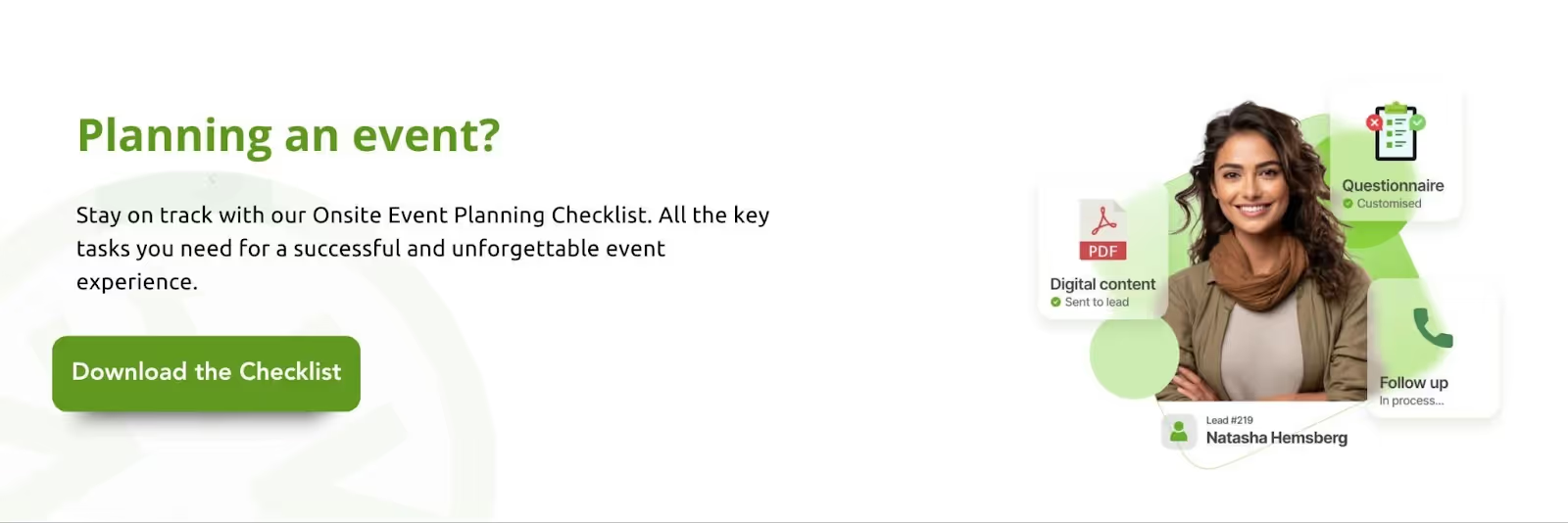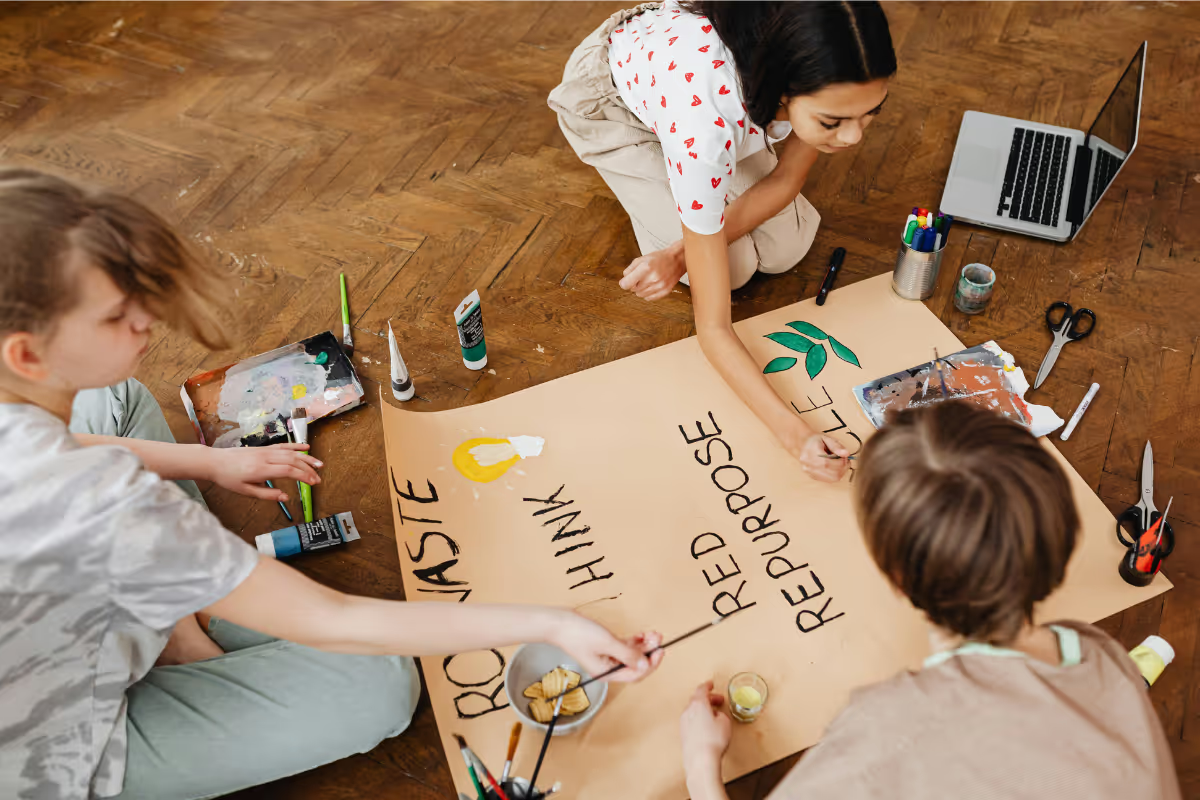15 Creative Workshop Ideas for Students to Boost Engagement
Explore 15 engaging workshop ideas for students from AI to storytelling to spark creativity, build real-world skills, and enhance classroom learning.

CONTENT
Are you looking for workshop ideas for students that will hook their attention and spark their creativity? Traditional workshops often fail to keep students engaged. We’ve all been there, sitting through sessions that are more about ticking boxes than about real learning.
Students are busy, distracted, and looking for something that grabs their interest. If your workshops aren’t capturing their attention from the start, you’re already fighting an uphill battle. But it doesn't have to be this way.
A well-planned, engaging workshop can ignite a student's passion for learning, and it's easier than you might think. Research shows that workshops targeting specific groups, like engineering students or international students, have a 78% success rate, compared to only 52–54% for general audiences. This proves that the right approach, tailored to your students’ needs, can make a significant difference.
In this blog, we’ll explore some innovative workshop ideas that engage students, from interactive sessions to creative hands-on activities. We’ll walk you through how to organize these workshops so you’ll have actionable ideas, a clear strategy for organizing workshops, and insight into how to keep your students engaged throughout.
What is a Workshop?
A workshop is an organized, hands-on learning session designed to enhance skills, foster creativity, and drive participant collaboration. Unlike traditional lectures or seminars, workshops are interactive environments where attendees actively engage in activities, group discussions, and real-time problem-solving.
Led by experts in the field, workshops provide a platform for participants to gain practical knowledge, explore new concepts, and apply them immediately. Whether it’s a brainstorming session, skill-building activity, or problem-solving exercise, workshops are centered around collaborative learning to ensure that every participant is involved and can take away tangible results.
Key Characteristics of Workshops
Workshops are unique learning experiences that stand out from other formats. To ensure a workshop’s success, there are a few key characteristics that define its structure and effectiveness:
- Interactive Learning: Workshops thrive on participation. They are not just about sitting and listening; participants are expected to engage through discussions, exercises, and hands-on activities.
- Clear Goal and Purpose: Every workshop has a specific objective, whether it's improving a skill, solving a problem, or fostering team collaboration. The purpose guides the activities and helps the facilitator focus on achieving the desired outcomes.
- Structured and Time-Bound: A well-planned workshop is structured with a clear agenda and set timeframes. This ensures that every workshop segment is purposeful and that participants stay on track, avoiding long-winded discussions or drifting off-topic.
- Facilitated by an Expert: Workshops are typically led by a skilled facilitator or expert in the subject matter. They guide participants through activities, manage group dynamics, and ensure that the session stays productive and engaging.
- Dynamic and Flexible: The best workshops are adaptable. A good facilitator can read the room and adjust activities to suit the group’s energy, needs, or external factors.
These characteristics come together to create an environment where participants not only learn but also actively contribute and apply what they’ve learned in real time. But that’s not all. A workshop can provide many other benefits, especially to students. Let’s understand them in detail.

Benefits of Hosting a Workshop for Students
Hosting a workshop for students offers a range of benefits that go beyond traditional learning methods. By hosting one, you can help students gain practical skills, improve their academic performance, and even boost their personal and professional growth. Here are the benefits it provides:
Academic Benefits:
- Enhanced Knowledge Retention: Workshops are designed to keep students engaged through hands-on activities and real-time problem-solving, helping them retain information more effectively than passive learning methods.
- Deeper Understanding: The interactive nature of workshops encourages students to explore topics in-depth, leading to a better grasp of the subject matter.
- Improved Grades: By addressing specific learning needs, workshops help students focus on challenging areas, potentially improving their academic performance and grades.
- Skill Development: Students can develop valuable skills that go beyond textbook learning, such as critical thinking, problem-solving, and teamwork, which contribute to their academic growth.
Non-Academic Benefits:
- Collaboration and Teamwork: Workshops often involve group activities that encourage collaboration, helping students build strong teamwork skills essential in academic and professional settings.
- Networking Opportunities: Students have the chance to meet and interact with their peers and experts in the field, opening doors to new connections and future opportunities.
- Exposure to Industry Trends: Workshops led by industry professionals provide students with real-world insights into current trends, tools, and practices that can enhance their career prospects.
- Personal Growth: Beyond academics, workshops promote the development of soft skills like communication, creativity, and leadership, which are crucial for success in any career.
- Increased Confidence: By applying what they’ve learned in practical exercises or final projects, students can build confidence in their abilities, encouraging them to take on more challenges in the future.
Hosting a workshop allows students to grow academically and develop skills that will serve them well in their personal and professional lives. But workshops come in various types, each serving a distinct purpose. Let’s discuss the types now.
Different Types of Workshop Events for Students
Workshops come in various formats, each serving a unique purpose and targeting different student needs. Selecting the right type depends on what you want your students to achieve. Here are some popular workshop types:
These types give a solid foundation for deciding which workshop works best for your students and needs. Once you decide on the types, the next step is finding an engaging and relevant workshop idea. Let’s explore them.
15 Innovative Workshop Ideas to Engage and Empower Students
The right workshop can leave a lasting impact if you want to spark creativity, enhance leadership skills, or prepare students for the workforce. In this section, we’ll explore 15 innovative workshop ideas that will engage students, promote active learning, and empower them with the tools they need to succeed.
1. AI and Machine Learning Workshop
AI and Machine Learning are transforming industries globally, and this workshop allows students to dive into these technologies. From understanding the basics of machine learning algorithms to building their first AI models, students will gain valuable insights and hands-on experience in one of the most sought-after fields in tech.
How to Organize:
- Start with an Overview: Introduce AI and ML concepts, explaining the difference between them, their applications, and why they matter today.
- Introduce Key Algorithms: Walk students through fundamental algorithms like linear regression, decision trees, and neural networks. Show examples and use cases for each.
- Practical Coding Sessions: Have students write Python code to implement simple machine learning models. Use tools like Jupyter Notebooks, TensorFlow, or Scikit-learn for practical applications.
- Work on Datasets: Provide datasets for students to analyze and build models around. Guide them through the steps of data preprocessing, feature selection, and model evaluation.
- Group Projects: Split students into small teams and assign them to work on a mini project, such as building a basic classifier or regression model.
- Interactive Q&A: Allow time for hands-on troubleshooting and questions, ensuring students understand the process and can apply their learning.
Outcome:
- Students gain practical experience in AI and ML with a project to showcase.
Best For:
- Students and beginners interested in AI, machine learning, and tech careers.
2. Financial Literacy and Budgeting Skills

A financial literacy workshop equips students with essential skills for managing money, budgeting, saving, and investing wisely. It helps them understand their financial choices and gain confidence in managing personal finances.
How to Organize:
- Introduce Financial Basics: Explain key concepts like budgeting, saving, and investing, focusing on practical, real-world applications.
- Use Interactive Tools: Introduce budgeting apps and spreadsheets for students to track their finances and create personal budgets.
- Hands-On Activities: Organize fun exercises like budgeting games, investment simulations, or creating a savings plan.
- Group Discussions: Encourage students to share financial goals and strategies in groups to stimulate learning and accountability.
- Guest Speaker: Invite a financial expert to share tips on managing student debt, saving, and long-term financial planning.
Outcome:
- Students will master personal budgeting and basic financial management skills.
- Participants will feel more confident in making informed financial decisions for the future.
Best For:
- Students, looking to improve their money management skills.
3. Creative Writing and Storytelling
A workshop on creative writing encourages students to explore their imagination and develop strong writing skills through storytelling techniques. It helps them express ideas, emotions, and narratives in a structured yet creative way.
How to Organize:
- Start with Storytelling Basics: This course teaches the fundamentals of storytelling, including character development, plot structure, and narrative voice.
- Interactive Writing Exercises: Have students write short stories, poems, or journal entries based on prompts.
- Peer Review: Organize group discussions where students share their work and provide constructive feedback to one another.
- Incorporate Creative Exercises: Use games like “writing challenges” to spark creativity and overcome writer’s block.
- Guest Writer or Author Talk: Invite an author to discuss their process and offer tips to inspire students.
Outcome:
- Students will gain confidence in writing and storytelling.
- Participants will leave with original pieces to showcase their creativity.
Best For:
- Students interested in creative writing, literature, or storytelling.
4. Public Speaking and Presentation Skills
This workshop equips students with essential public speaking and presentation skills, enabling them to express ideas clearly and confidently in front of an audience. It builds both their communication abilities and self-assurance.
How to Organize:
- Focus on Basics: Start with the fundamentals of speech structure, introduction, body, and conclusion, along with tone and body language.
- Interactive Exercises: Have students prepare and deliver short speeches or presentations on a chosen topic.
- Provide Feedback: Offer constructive feedback to help students improve their delivery and overcome nerves.
- Mock Presentations: Set up mock presentations to simulate real-life speaking situations, helping students gain comfort in front of an audience.
- Q&A Sessions: Encourage students to handle questions from the audience, improving their impromptu speaking skills.
Outcome:
- Students will improve their public speaking and presentation confidence.
- Participants will be able to communicate ideas clearly and effectively in various settings.
Best For:
- Students aiming to build stronger communication skills.
- Those preparing for interviews, class presentations, or professional speaking engagements.
5. Mindfulness and Stress Management Techniques
This workshop helps students understand the importance of mindfulness and provides tools to manage stress effectively. It focuses on techniques that enhance mental well-being, focus, and emotional balance.
How to Organize:
- Introduce Mindfulness Concepts: Explain the benefits of mindfulness, meditation, and deep breathing exercises for reducing stress.
- Practice Relaxation Techniques: Lead students through guided relaxation exercises, focusing on breathing and awareness.
- Stress-Relief Activities: Incorporate yoga, journaling, or visualization exercises to help students manage stress.
- Group Discussions: Discuss common stressors and share personal techniques for coping in a supportive environment.
- Expert Speaker: Invite a mental health expert to discuss how mindfulness impacts mental health and well-being.
Outcome:
- Students will learn techniques for managing stress and maintaining focus.
- Participants will feel more grounded and equipped to handle academic and personal challenges.
Best For:
- Students seeking to reduce stress and improve mental well-being.
6. Leadership and Teamwork Development
This workshop focuses on building strong leadership and teamwork skills, essential for academic, personal, and professional success. It empowers students to collaborate effectively and lead with confidence.
How to Organize:
- Start with Leadership Theories: Introduce leadership styles, qualities, and strategies contributing to effective team management.
- Group Challenges: Organize group activities where students work together to solve problems or complete tasks, fostering collaboration.
- Role-Playing Exercises: Allow students to step into leadership roles and practice decision-making, conflict resolution, and communication.
- Reflection and Feedback: After each activity, encourage students to reflect on their leadership and teamwork experiences and share insights with the group.
- Expert Speaker or Workshop: Invite a leadership coach to provide additional insights on developing leadership skills in professional environments.
Outcome:
- Students will develop essential leadership and teamwork skills.
- Participants will improve collaboration, communication, and decision-making abilities.
Best For:
- Students aiming for leadership roles in student organizations, groups, or future careers.
7. Graphic Design and Digital Art Workshop
This workshop introduces students to the fundamentals of graphic design and digital art, encouraging them to express creativity using modern tools and software. It helps them develop design skills applicable in various industries.
How to Organize:
- Introduce Key Design Principles: Start by explaining design elements like color theory, typography, and layout.
- Hands-On Software Training: Teach students how to use graphic design tools like Adobe Photoshop, Illustrator, or Canva.
- Project-Based Learning: Have students create digital art or design a project, such as a logo, poster, or social media graphic.
- Peer Review: Encourage students to critique each other’s designs, offering constructive feedback and suggestions.
- Guest Artist or Designer Talk: Invite a professional graphic designer to share industry trends and tips.
Outcome:
- Students will gain a strong understanding of graphic design basics.
- Participants will create digital art pieces to add to their portfolios.
Best For:
- Students interested in design, digital media, or pursuing a career in creative industries.
8. Entrepreneurship and Start-Up Essentials
This workshop teaches students the key elements of launching and managing a start-up, including idea generation, business planning, and funding strategies. It helps students develop the skills needed to become successful entrepreneurs.
How to Organize:
- Start with Idea Generation: Guide students through brainstorming techniques to develop viable business ideas.
- Business Planning: Teach students how to create a business plan, including marketing, finance, and growth strategies.
- Funding Strategies: Discuss different ways to fund a start-up, from bootstrapping to seeking venture capital or crowdfunding.
- Real-Life Case Studies: Analyze successful start-ups and dissect the key factors behind their success.
- Pitching Practice: Have students pitch their business ideas to the group or mock investors to practice persuasive communication.
Outcome:
- Students will understand the key steps in starting and running a business.
Best For:
- Students interested in entrepreneurship, innovation, or launching their own start-ups.
9. Sustainable Living and Environmental Awareness

This workshop introduces students to the principles of sustainable living, focusing on how small lifestyle changes can reduce environmental impact. It encourages students to adopt eco-friendly practices for a healthier planet.
How to Organize:
- Introduce Sustainability Principles: Educate students on topics like resource conservation, waste reduction, and eco-friendly alternatives.
- Practical Solutions: Teach students practical ways to reduce their carbon footprint, such as recycling, reducing energy use, and sustainable eating.
- Hands-On Activities: Organize activities like creating compost bins, making reusable products, or starting a campus garden.
- Group Discussions: Encourage students to discuss current environmental issues and brainstorm sustainable solutions.
- Guest Speaker: Invite an environmental expert to discuss real-world sustainability applications in various industries.
Outcome:
- Students will gain knowledge about sustainable living practices.
Best For:
- Students passionate about environmental conservation and sustainability.
10. Project Management and Time Management Skills
This workshop helps students develop key skills in managing projects and time effectively. It provides tools and strategies for planning, organizing, and executing tasks to achieve goals efficiently.
How to Organize:
- Teach Project Management Fundamentals: Introduce the basics of project planning, including goal setting, timeline creation, and resource allocation.
- Time Management Techniques: Teach students strategies for better time management, such as the Pomodoro Technique, task prioritization, and goal setting.
- Group Activities: Have students work on a mini project together, practicing the project management and time management strategies discussed.
- Use Project Management Tools: Introduce tools like Trello or Asana to help students organize tasks and track progress.
- Reflection and Feedback: After the group activity, discuss what worked well and what could be improved in terms of project execution and time management.
Outcome:
- Students will gain practical skills in managing projects and time efficiently.
- Participants will be able to apply time management strategies to improve productivity.
Best For:
- Students looking to improve their project management and organizational skills.
11. DIY Crafts and Upcycling Projects

This workshop allows students to explore their creativity through hands-on DIY crafts and upcycling projects. It encourages sustainable practices while developing practical skills and artistic expression.
How to Organize:
- Introduce Upcycling Concepts: Start by discussing the importance of sustainability and the value of repurposing materials into new products.
- Hands-On Crafting: Provide materials for students to create DIY crafts, such as upcycled furniture, home decor, or wearable art.
- Guided Tutorials: Walk students through step-by-step tutorials on various projects, demonstrating techniques and encouraging creativity.
- Collaborative Work: Encourage students to work in groups to create larger projects, fostering teamwork and shared creativity.
- Showcase: Organize a mini-exhibition or presentation at the end of the workshop for students to display their creations.
Outcome:
- Students will develop hands-on crafting skills and a creative mindset.
- Participants will leave with unique upcycled projects and new ideas for sustainability.
Best For:
- Students interested in art, sustainability, or DIY projects.
12. Critical Thinking and Research Skills
This workshop helps students improve their ability to think critically and conduct effective research. They will learn to analyze, evaluate, and apply information to solve problems and make informed decisions.
How to Organize:
- Introduce Critical Thinking Concepts: Explain the importance of critical thinking in academic and real-world scenarios, focusing on problem-solving and decision-making.
- Research Methodology: Teach students effective research methods, including how to gather, evaluate, and synthesize information from various sources.
- Case Studies: Use real-world examples to demonstrate the application of critical thinking and research in solving complex problems.
- Group Exercises: Have students work in groups to research a topic, analyze data, and present their findings.
- Discussion and Feedback: Encourage open discussion and provide feedback on the research process and conclusions drawn.
Outcome:
- Students will enhance their critical thinking and research skills.
- Participants will be better equipped to analyze information and make informed decisions.
Best For:
- Students who want to strengthen their analytical and research abilities.
- Those preparing for academic projects, thesis work, or professional problem-solving tasks.
13. Conflict Resolution and Negotiation Skills
This workshop teaches students how to handle conflicts constructively and negotiate effectively. It helps them develop skills needed to manage disagreements in both personal and professional settings.
How to Organize:
- Introduce Conflict Resolution Strategies: Teach students various conflict resolution methods, such as active listening, empathy, and finding common ground.
- Negotiation Techniques: Demonstrate negotiation strategies focusing on collaboration and win-win outcomes rather than competition.
- Role-Playing Scenarios: Set up mock conflict situations where students can practice their resolution and negotiation skills in a safe environment.
- Group Reflection: After each role-play, discuss what worked, what didn’t, and how the strategies can be improved.
- Real-Life Applications: Share examples of conflict resolution and negotiation in different contexts (e.g., workplace, family, community).
Outcome:
- Students will improve their ability to resolve conflicts and negotiate effectively.
- Participants will leave with actionable skills they can apply to real-world situations.
Best For:
- Students looking to improve their communication, mediation, and negotiation abilities.
14. Time Management and Productivity Hacks
This workshop helps students learn effective time management techniques and productivity hacks to help them accomplish more in less time. It empowers them to prioritize tasks and stay organized.
How to Organize:
- Introduce Time Management Strategies: Teach students time management methods such as the Pomodoro Technique, time-blocking, and task prioritization.
- Productivity Tools: Introduce productivity apps and tools like Trello, Todoist, or Google Calendar to help students stay organized.
- Goal Setting: Show students how to set realistic, achievable goals and break them down into manageable tasks.
- Time Audit: Have students perform a time audit to track how they spend their time and identify areas for improvement.
- Group Challenges: Organize activities where students apply time management strategies to complete tasks within a set time frame.
Outcome:
- Students will develop effective time management skills and increase their productivity.
- Participants will learn to prioritize tasks and stay organized under pressure.
Best For:
- Students who are struggling with time management or looking to boost their productivity.
- Those who juggle multiple responsibilities, such as schoolwork, jobs, and extracurricular activities.
15. Career Planning and Resume Building
This workshop equips students with the tools they need for career planning and building a professional resume. It helps them identify their strengths and how to present themselves effectively to potential employers.
How to Organize:
- Career Exploration: Start by helping students identify their career interests, strengths, and skills through self-assessment activities.
- Resume Writing: Teach students how to craft a professional resume highlighting key skills, experience, and accomplishments.
- Interview Preparation: Provide tips and mock interviews to help students prepare for job interviews and improve their self-presentation.
- Networking Tips: Introduce networking strategies and platforms like LinkedIn to help students build professional connections.
- Guest Speaker: Invite a career expert or recruiter to provide insights on what employers look for in resumes and candidates.
Outcome:
- Students will have an updated, professional resume and a clearer idea of their career path.
- Participants will feel more confident in their job search and interview process.
Best For:
- Students are preparing for internships, part-time jobs, or full-time careers.
These workshop ideas provide a strong starting point for creating meaningful learning experiences for your students. To bring those ideas to life, the next step is learning how to organize these workshops effectively. Let’s dive into the steps for organizing a successful workshop.

A Step-by-Step Guide to Organizing Engaging Workshops for Students
Organizing a successful workshop for students involves careful planning, clear objectives, and effective engagement strategies. Here’s a step-by-step guide to help you organize a workshop that truly resonates with students.
- Step 1 – Identify Your Target Audience: Understand the student group you cater to and what they need to learn. Tailor the workshop content to meet their academic or personal development goals.
- Step 2 – Choose a Relevant Topic: Select a topic that aligns with the students' current needs and interests. It should be timely, engaging, and relevant to their studies or extracurricular activities.
- Step 3 – Define Your Expected Outcomes: Clearly define what you want students to achieve by the end of the workshop. Focus on outcomes like skill development, increased knowledge, or practical takeaways they can apply.
- Step 4 – Plan Your Event Program: Create an agenda with a mix of activities that engage students. Include interactive exercises, group discussions, and hands-on tasks to keep them motivated and involved.
- Step 5 – Send Invitations and Manage Registration: Use simple, student-friendly online platforms for registration. Provide clear instructions and allow students to sign up easily for the workshop.
- Step 6 – Host the Workshop: Manage time effectively during the event. Use technology like fielddrive for smooth check-ins and badge printing. Ensure the session runs smoothly by engaging students through discussions, activities, and easy-to-follow Q&A sessions.
- Step 7 – Collect Feedback for Improvement: At the end of the workshop, gather feedback from students through quick surveys. Use this feedback to understand what worked well and how to improve future workshops.
Following these steps, you can organize an engaging workshop that empowers students with new skills and knowledge.
Create Unforgettable Workshops with fielddrive’s Event Solutions
fielddrive offers cutting-edge event technology designed to streamline your event management process and enhance the attendee experience. Our innovative solutions make organizing workshops seamless and engaging, allowing you to focus on delivering valuable content while fielddrive takes care of the rest.
Here’s how fielddrive can elevate your workshops:
- Facial Recognition Check-In: Speed up the check-in process, reducing wait times and ensuring a smooth entry for attendees.
- Touchless Check-In: With contactless check-in options, fielddrive ensures a safe and efficient entry, especially important in today’s health-conscious environment.
- Real-Time Analytics: Track attendance, session engagement, and more in real time, giving you valuable insights to make immediate adjustments during the workshop.
- On-Demand Badge Printing: Print personalized, eco-friendly badges in seconds, providing a professional touch while saving time and resources.
- Lead Retrieval Tools: For workshops with exhibitors or networking opportunities, fielddrive’s lead retrieval tools help track interactions and capture attendee information for follow-ups.
- Session Scanning and Access Control: Keep track of who attends which sessions with fielddrive’s scanning tools, ensuring smooth transitions and accurate data for post-event analysis.
- Seamless Integrations: Easily integrate fielddrive’s solutions with your existing event platforms, ensuring all your tools work together without disruption.
With fielddrive, your workshops will run more efficiently and offer a more engaging and seamless experience for your attendees.
Conclusion
Creating engaging and interactive workshops is essential for keeping students motivated and helping them retain knowledge. Whether you’re focusing on skill-building, creativity, or personal development, the right workshop can make all the difference in a student’s learning experience. The ideas shared in this blog are just the starting point.
Now, to truly elevate your workshop experience, consider integrating technology that simplifies management and boosts engagement. That’s where fielddrive comes in. With its facial recognition check-in, real-time analytics, and on-demand badge printing, fielddrive streamlines event logistics, giving you more time to focus on what matters – your content.
Get in touch to create workshops that leave a lasting impression. Book a free demo today!
Frequently Asked Questions
When should I host a workshop?
Host a workshop when there's a clear need for hands-on learning or skill development that can’t be fully addressed through traditional classes or lectures.
What is an example of a workshop for students?
An example would be a creative writing workshop where students develop storytelling skills through guided writing exercises, peer feedback, and group discussions.
How can I make my workshop interesting?
Incorporate interactive elements like group discussions, practical activities, and real-world examples. Keep it dynamic and ensure everyone is actively involved.
What should you do in a workshop?
Facilitate learning through engagement, encourage participation, guide activities, provide feedback, and ensure educational and interactive content.
What are the objectives of a workshop for students?
The main objectives are to develop specific skills, enhance knowledge, encourage collaboration, and provide a platform for students to apply what they’ve learned in real-life scenarios.
Want to learn how fielddrive can help you elevate your events?
Book a call with our experts today



.png)
.svg)
.svg)
.svg)

.svg)